Barah By Barah Review: Gaurav Madan offers a gentle, plaintive snapshot of a city in churn
The debut film is an elegy in soft notes to a rapidly transforming Varanasi
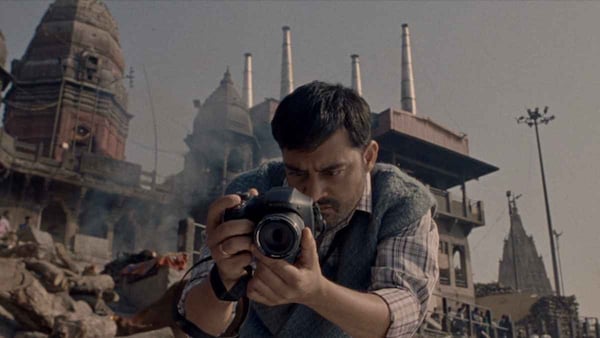
Last Updated: 07.42 AM, May 30, 2024
Story: In Varanasi, Sooraj (Gyanendra Tripathi), a photographer who captures the dead on their way to the cremation ghats, is confronted with irrelevance and disposability as the city is thrust in flux and the doldrums of technology.
Review: Barah by Barah is rooted in a sense of evanescence, an inkling of transition that is overtaking the city of Varanasi. It is a placed marked by the liminal as well as functioning like a conduit or a string between life and death. Sooraj’s job as a ‘death photographer’ is hit by the thrust for technology, mobile photography and swift change that sweeps over the holy city.
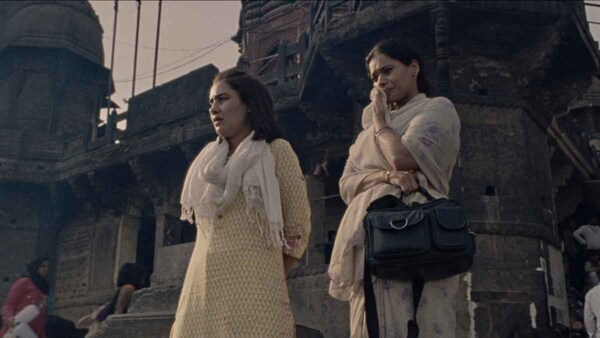
Sooraj’s ailing father (Harish Khanna) resists going to Delhi for treatment, dreading the possibility of dying in a hospital instead of his own city where people come seeking salvation. He cannot escape the irony of such circumstances, opting therefore to decay in and with the city as it casts away the carapace of the old. Once a barber, he clings onto its remnants in his life, his daily tinkering with the razor attempts at retaining it in some way or form. However, most of what the father and son have been familiar with in the mortality business is fast disappearing. Sooraj’s friends and acquaintances are quickly switching over to new jobs and other business prospects.
The remodelling of the city to affect the construction of the Kashi-Vishwanath corridor entails a swathe of demolitions. Homes with storied pasts are ripped out to make way for developmental policies designed to boost the city’s tourism. Through a radio announcement, the then impending 2019 election of Prime Minister Modi piggybacking on this remodelling for a tide of popularity embeds itself in the context.
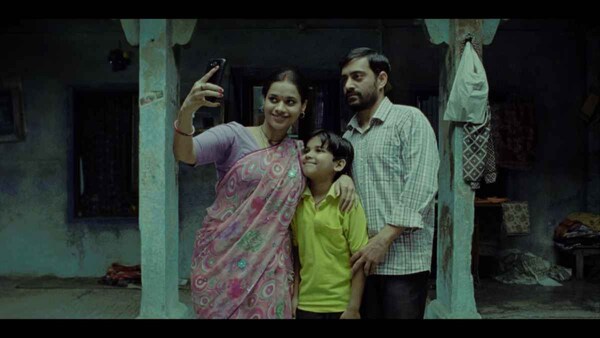
As Sooraj is surrounded by growing markers of swanky modernity, a Ganga cruise propping up, he is plunged into a deep wandering and the magnifying anxiety of his own outmodedness. Somewhere along the way, he has gotten tuned out of the very calling of his job. As the artist in him may have taken a backseat in being pummelled by the rhythms of making a livelihood and sustaining his family, he is both wavering and adrift. This confusion is incrementally tied to him getting caught in the cogs of a system being pushed into aggressive, violent motion without caring to scoop up those it inviolably stomps over. Uprooting and a complete switch in what one may have been accustomed to doing and living off are persistent threats that swirl all around Sooraj. Can he even afford to stick to what he does? How longer can he keep up the appearance of being unfazed by the drastic makeover that demands of him an immediate reorienting?
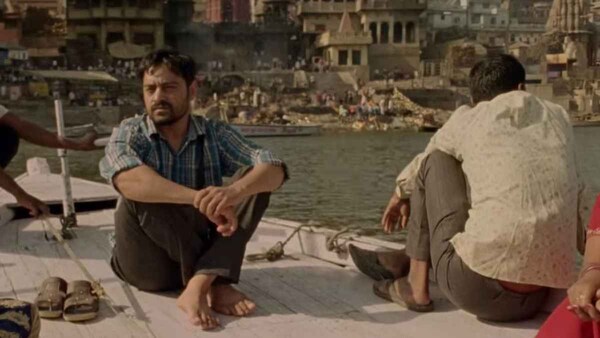
Sooraj’s friend Dubey ( Akash Sinha) is a pyre wood supplier who embodies the locals’ resolve of not ceding their family homes, replete with their own generational histories, ease the passage for the corridor. Even as he protests it, he is aware of his helplessness. The heritage of Kashi that he, like so many others, strives to uphold is hurled into disarray.
Sooraj’s vision is stuck in ways that echo his father’s and scores of others in the city that cannot quite make peace with the actuality of having to re-arrange his entire life and start afresh. Even if he doesn’t admit to himself, he is trapped in the cycle of a cloistered tradition that misreads the necessity of surging forth as a betrayal of the old. In a city that’s being quickly razed over by the façade of modernity, the fact that he too can piece together his fraying life in a new, defiant fashion is a gesture loaded with more potential than just being indicative of abandoning his former self.
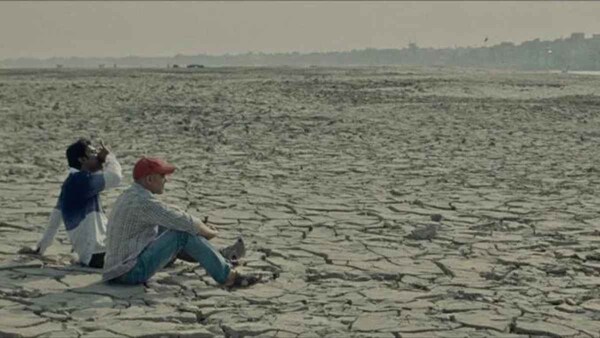
It is his wife, Meena (Bhumika Dube) and sister, Mansi (Geetika Vidya Ohlyan), who act as invigorating engines, widen and shift his attention beyond the constriction of his circumstances. The women in the film are agents of growth, fostering an expansiveness of spirit. They steer the life unfurling in the tale into new waters. Of course, as Madan hints with an elegant economy, the path to independence and breaking away from the yoke of the city couldn’t have been easy for Mansi, who chose to pursue a future in Delhi. The tussle and tension between Mansi and her father stay stiff and unbending for as long as eight years until the latter, mellowed by frail health, reconsiders and caves in to the thought of a Holi reunion. The father’s headstrong self is a shell that has with time and age cracked.
The screenplay, written by Madan and Sunny Lahiri (also doubling as the DoP), takes a subdued, nevertheless powerfully effective tone in delineating the conflicts at its core. The fear and tentativeness in letting go of familiarity is offset by surging change. The see-saw among challenging, accepting and weathering change laces the narrative, operating in a low-key register, with dynamism and potency. Barah by Barah is also buttressed greatly by a holistically authentic bunch of performances. Nobody feels as if he or she has been dissonantly inserted into a city that is fading and assuming disconcertingly new shapes. A clear standout though is Bhumika Dube, who is absolutely luminous as Meena, channelling a stolidity rich in an inner strength and determination. Meena is forward-thinking and emboldening in quiet but firm ways, a source of reassurance to her husband as well as propelling him in moments when he’s convinced of being lost in waywardness. Dube exceptionally enhances Meena’s having a mind of her own that is capable of forging proactive hope and resilience. The relationships are drawn with a lot of warmth and generosity. Both Meena and Mansi enable Sooraj to etch out a trajectory. Though it is deferred, the promise of a future does shine through.
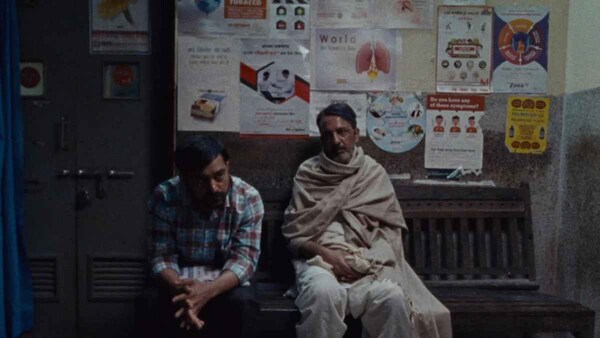
Verdict: Every bit and moment of Barah By Barah has a wonderfully lived-in texture. Snaking through the streets and narrow by lanes of Varanasi, Naveen Lohara’s production design and Sunny Lahiri’s exquisite camerawork work in superb congruence, vividly rendering a place perched on the cusp of irrevocable change. Gaurav Madan’s debut is assured, grounded filmmaking, held strongly by a composite of unobtrusively staged, deeply felt sequences that bustle with equal parts examination-of-a-city and aching soul .

 Premium
Premium